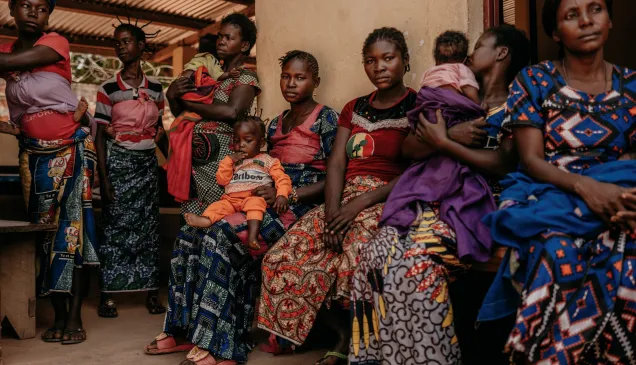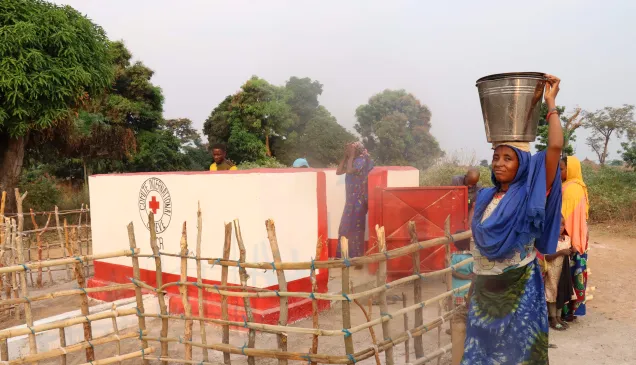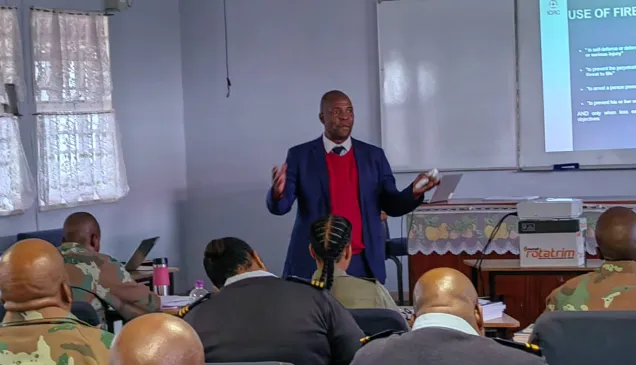As delivered by Bruce Biber, ICRC Head of Delegation in Bangui, Central African Republic
Ladies and gentlemen,
Twenty months after the signature of the Peace Agreement and as the country is preparing for the elections, armed violence (including widespread sexual violence that Denise [Brown] was emphasizing earlier), criminality, the compounding impacts of climate change, COVID19 and its secondary effects are making a bad situation even worse.
In the northeast, hostilities amongst armed groups have reached the level of an armed conflict and have triggered the application of international humanitarian law. Confrontations between armed groups and security forces supported by MINUSCA are also on the rise.
As a number of the colleagues have stressed already, Central African Republic remains one of the most dangerous environments in the world, in which humanitarian organizations such as ICRC are subject to criminal attacks. Like in Ndele as David Mannan [NRC] mentioned earlier.
Today, I would like to draw your attention to three points:
First point: weapons-bearers – I mean security forces, armed groups and MINUSCA – must take the steps necessary to hold themselves accountable in the respect of international humanitarian and human rights law. Defense and security forces that have been deployed and reinforced throughout the country ahead of the elections should be trained and equipped to ensure they conduct their operations in respect of the applicable legal framework. Oversight mechanisms are also necessary. Judicial and penitentiary systems should be reinforced to enhance the rule of law.
The ICRC is committed to accompanying all relevant actors in this effort - including the armed groups whom we proactively engage to secure acceptance of humanitarian action as well as respect for the civilian population, the medical mission, and persons deprived of liberty.
Second, the ICRC encourages authorities and their partners to address insecurity in the long run. We've heard it already from a number of speakers: insecurity is a scourge that prevents Central Africans from helping themselves and threatens the ability of ICRC and other humanitarian organizations to provide support. The fight against impunity is critical in this regard.
Third, and more than ever, attention must not be diverted from the humanitarian needs in CAR. During the months ahead, needs must be anticipated and remain at the center of our collective efforts. The humanitarian space and principles must be respected and protected by everyone. Humanitarian organizations must be able to conduct their activities not only in safety, but also in an impartial manner, free from any external pressure.
Mark, I wish to take this opportunity to thank the humanitarian coordinator Denise Brown and her colleagues at OCHA for creating an exceptional working environment within the humanitarian community in Central African Republic, where we mutually support one another in pursuit of our common mission to alleviate human suffering and to save lives. I would also like to express our gratitude to the authorities of the Central African Republic, who enable the ICRC to carry out its mandate to protect and to assist the victims of the armed conflict and other situations of violence throughout the national territory. I join them all in our common call to you, the members of the international community, to place the Central African Republic at the heart of your concerns. Humanitarian appeals remain severely underfunded – including the ICRC's own budget appeal. Lack of funding must not impede our collective efforts to address the most urgent needs and vulnerabilities in the country. Your solidarity is deeply appreciated by us all, as it makes a real difference for the people.
Dear Colleagues, humanitarian action in the Central African Republic is vital – not only to prevent a bad situation from becoming worse, but also to create the conditions necessary for lasting stability and human development across the nation, as David was emphasizing earlier. In pursuit of this vision, the ICRC is working to engage development actors and financing institutions for a sustainable provision of vital services by Central Africans, for Central Africans. In places like Kaga Bandoro, Ouandago, and Grevai. Such complementarity between the political, humanitarian and development actors is key in helping to meet the aspirations of Central Africans for peace, prosperity and dignity.
Thank you, Mark.



